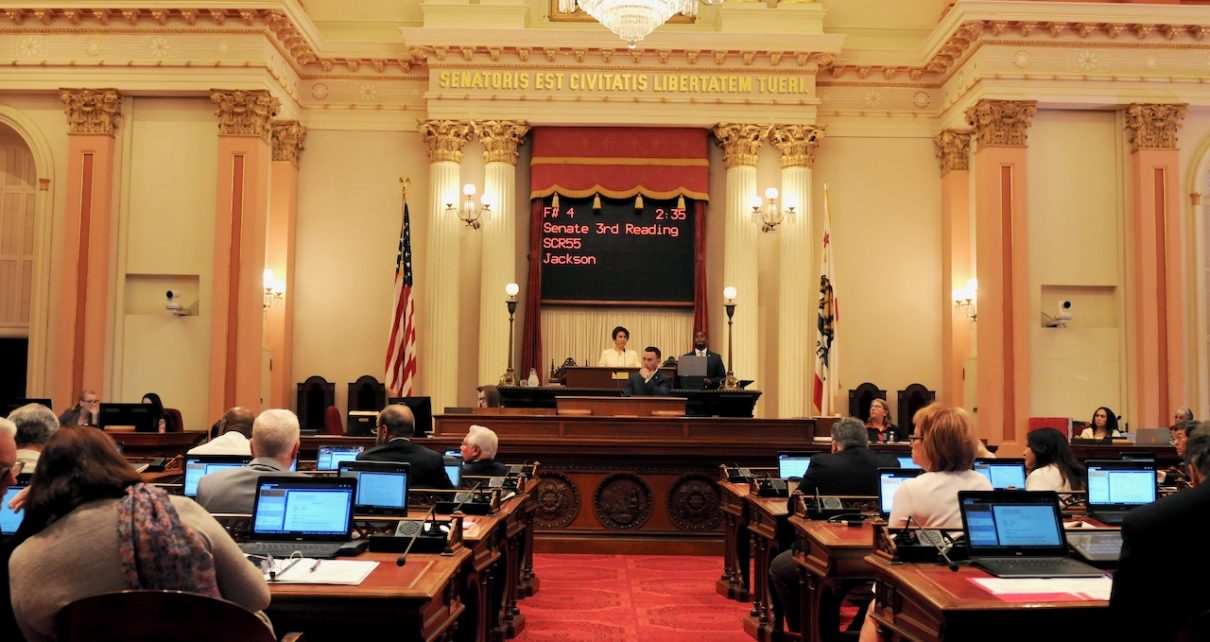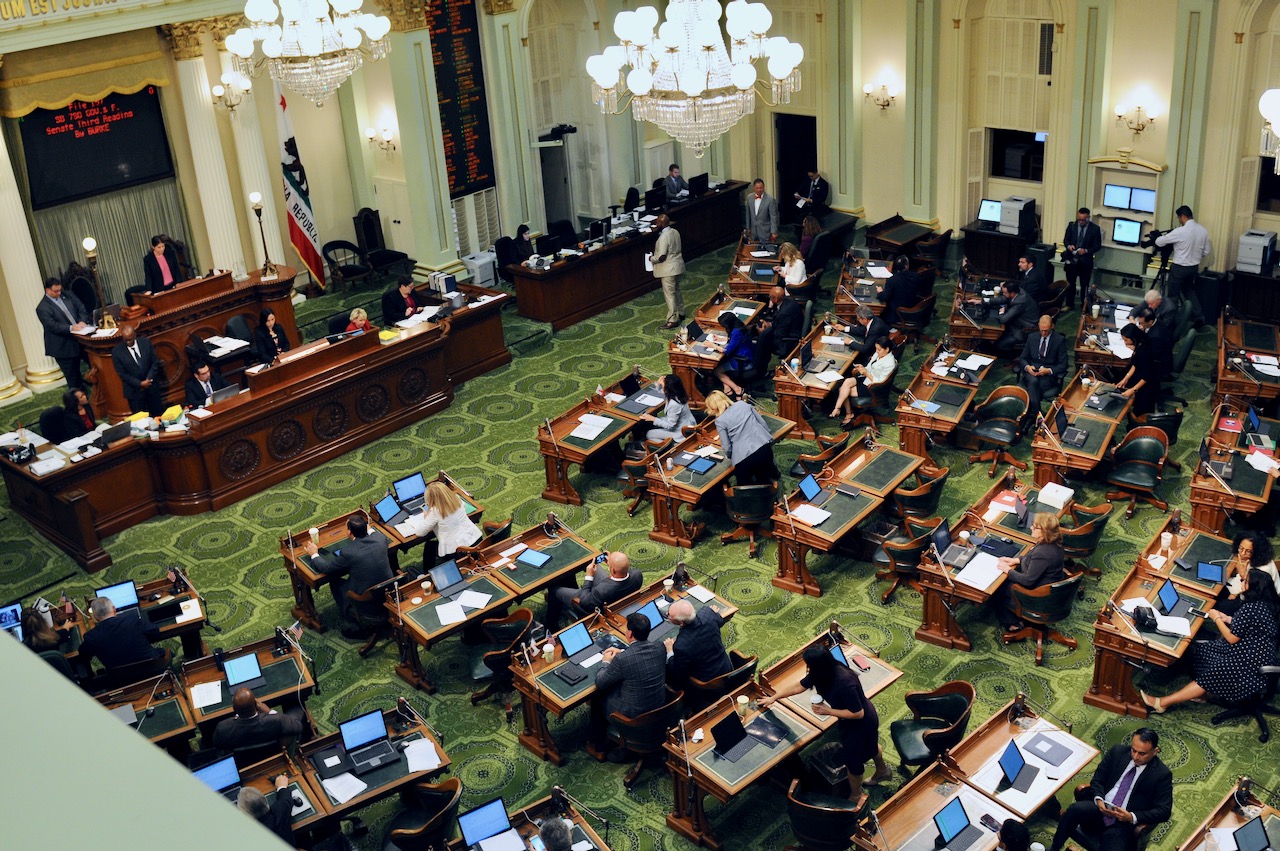
California State Senate. (Photo: Kevin Sanders for California Globe)
General Guidance in Reading the Commercial Code
This code must be liberally construed and applied to promote its underlying purposes and policies
By Chris Micheli, June 12, 2022 8:06 am
California’s statutes are contained in 29 separate codes. The fourth alphabetically is the Commercial Code. All 29 Codes have general provisions applicable to reading and interpreting that Code’s sections. The following are selected general provisions of the Commercial Code:
Section 1101 – This Code may be cited as the Uniform Commercial Code.
Section 1102 – This division applies to a transaction to the extent that it is governed by another division of this Code.
Section 1103 – This code must be liberally construed and applied to promote its underlying purposes and policies, which are: (1) to simplify, clarify, and modernize the law governing commercial transactions; (2) to permit the continued expansion of commercial practices through custom, usage, and agreement of the parties; and (3) to make uniform the law among the various jurisdictions.
In addition, unless displaced by the particular provisions of this Code, the principles of law and equity, including the law merchant and the law relative to capacity to contract, principal and agent, estoppel, fraud, misrepresentation, duress, coercion, mistake, bankruptcy, and other validating or invalidating cause supplement its provisions.
Section 1104 – This Code is a general act intended as a unified coverage of its subject matter, no part of it is deemed to be impliedly repealed by subsequent legislation if the construction can reasonably be avoided.
Section 1105 – If any provision or clause of this Code or its application to any person or circumstance is held invalid, the invalidity does not affect other provisions or applications of the Code which can be given effect without the invalid provision or application, and to this end the provisions of this Code are severable.
Section 1106 – In this Code, unless the statutory context otherwise requires: words in the singular number include the plural, and those in the plural include the singular; and words of any gender also refer to any other gender.
Section 1108 – This chapter modifies, limits, and supersedes the federal Electronic Signatures in Global and National Commerce Act, 15 U.S.C. Section 7001 et seq., except that nothing in this chapter modifies, limits, or supersedes Section 7001(c) of that act or authorizes electronic delivery of any of the notices described in Section 7003(b) of that act.
Section 1201 – Unless the context otherwise requires, words or phrases defined in this section, or in the additional definitions contained in other divisions of this Code that apply to particular divisions or chapters thereof, have the meanings stated.
Section 1204 – Except as otherwise provided, a person gives value for rights if the person acquires them: (1) in return for a binding commitment to extend credit or for the extension of immediately available credit, whether or not drawn upon and whether or not a chargeback is provided for in the event of difficulties in collection; (2) as security for, or in total or partial satisfaction of, a preexisting claim; (3) by accepting delivery under a preexisting contract for purchase; or (4) in return for any consideration sufficient to support a simple contract.
Section 1205 – Whether a time for taking an action required by this Code is reasonable depends on the nature, purpose, and circumstances of the action. An action is taken “seasonably” if it is taken at or within the time agreed or, if no time is agreed, at or within a reasonable time.
Section 1206 – Whenever this Code creates a “presumption” with respect to a fact, or provides that a fact is “presumed,” the trier of fact must find the existence of the fact unless and until evidence is introduced that supports a finding of its nonexistence.
Section 1301 – Except as otherwise provided in this section, when a transaction bears a reasonable relation to this state and also to another state or nation, the parties may agree that the law either of this state or of the other state or nation must govern their rights and duties. In the absence of an agreement, and except as provided, this Code applies to transactions bearing an appropriate relation to this state.
Section 1304 – Every contract or duty within this Code imposes an obligation of good faith in its performance and enforcement.
Section 1305 – The remedies provided by this Code must be liberally administered to the end that the aggrieved party may be put in as good a position as if the other party had fully performed but neither consequential or special damages nor penal damages may be had except as specifically provided in this Code or by other rule of law. Any right or obligation declared by this Code is enforceable by action unless the provision declaring it specifies a different and limited effect.
- What Type of Lobbyist Do You Want to Be? - February 28, 2026
- Proration of Estate Taxes - February 28, 2026
- Corporations Commissioner Powers - February 27, 2026





2 thoughts on “General Guidance in Reading the Commercial Code”